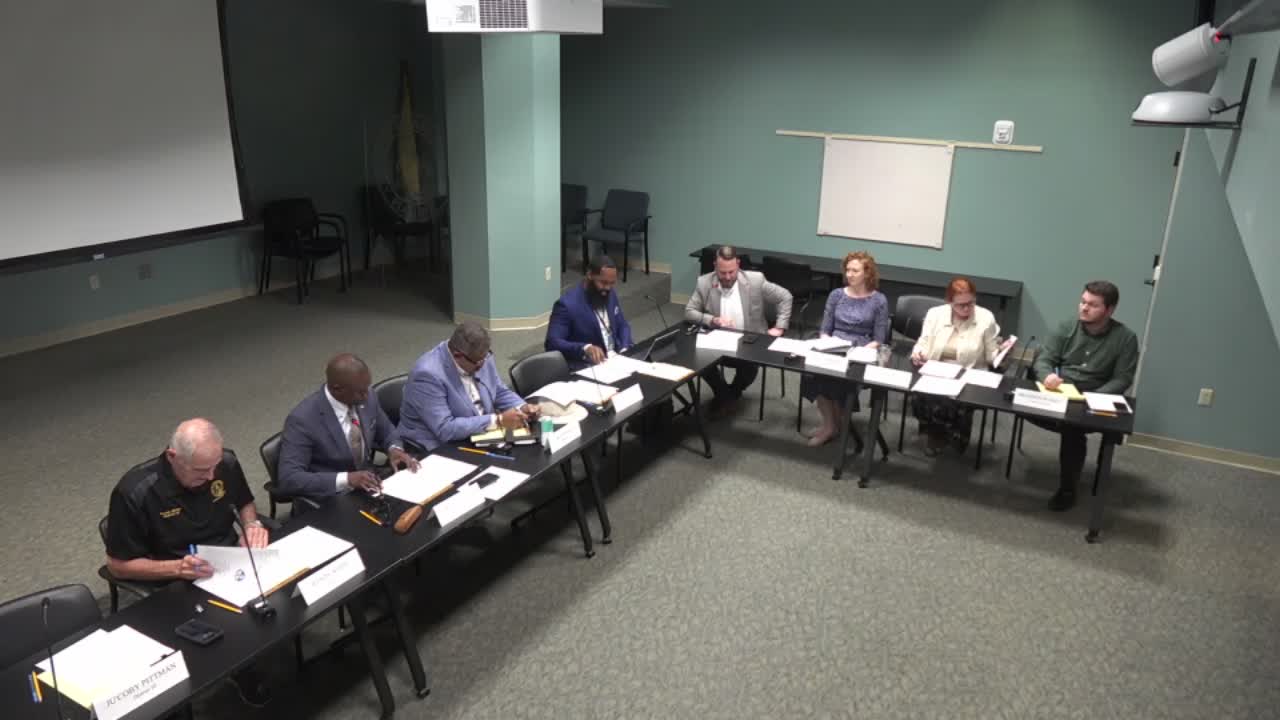Councilman Terrence Freeman, at-large, convened the Jacksonville City Council’s Special Committee on Youth Empowerment and outlined a multiworkshop effort to connect education, mentorship and work opportunities for young people ages roughly 16 to 24.
The committee’s charge, Freeman said, is to review initiatives and partnerships that promote educational advancement and civic engagement; recommend recreational programming and use of parks and community centers; support job-training programs, apprenticeships and career pipelines; and evaluate public-safety concerns in city parks in coordination with the Jacksonville Sheriff’s Office.
Freeman said the council previously approved about $5,000,000 to support the effort and described the committee’s immediate goal as reducing the city’s “disconnected” youth population. “The cost of doing nothing is substantial,” Freeman said, summarizing national benchmarks he presented on the economic impact of disengaged young people.
Nut graf: Committee leaders framed the work as an attempt to close a transition gap that opens around age 18, when school-based supports often drop away and many young people lack clear entry points to jobs or training. The committee will hold four workshops to develop coordinated proposals, then open a structured RFP process for programs that align with the committee’s priorities.
John Everett, director of workforce development for the city, described a recurring problem in Jacksonville and elsewhere: “We do a great job … and then we get to age 18 and all of a sudden we say, ‘good luck.’” Everett said the committee will focus on transitional supports so young adults do not fall out of education and employment systems.
Freeman and Everett listed four strategic focus areas the committee will explore in subsequent meetings: strengthening education and life skills tied to employment outcomes; building mentorship and social capital; expanding experiential learning (paid internships, apprenticeships and work-based learning); and modernizing parks and community centers so they can host evening and weekend programming.
Freeman presented a snapshot of local data the committee will use: about 22,600 Jacksonville residents ages 16–24 are not in school and not working (about 12.6 percent of local youth, he said); local youth employment is concentrated in food service, retail and transportation; the region has 228 registered apprenticeship employers and more than 1,700 internship opportunities; and several neighborhoods — including Brentwood, Norwood and Royal Terrace — lag the city average by more than 15 percentage points in prime-age youth employment. Freeman also cited national estimates that place the annual public cost of a single disconnected young person between $14,000 and $37,000 and calculated a local aggregate “opportunity cost” in the hundreds of millions.
Freeman said the committee will meet again on Nov. 13 at 4:00 p.m., and then Jan. 15, Feb. 19 and March 26, with each meeting running about an hour. He said KHA (Kids Hope Alliance) will play a “vital role” in processing proposals and that the city will run a transparent RFP once the committee refines program priorities.
Public commenters and workforce providers urged that apprenticeship programs be treated as career pathways with employer commitments, and that the city improve access to high schools so students learn about trade and apprenticeship opportunities. Lance Fathom, president of the North Florida Building Construction Trades Councils, told the committee that “apprenticeship … comes with a career and it comes with a job,” and warned that training programs without employer pathways fail to produce lasting employment.
Kirk Barris, president of the Jacksonville General Apprenticeship Association, said the barrier is often access to students and the decisions of end users and employers. He asked the committee to consider how school-district processes and employers’ background checks affect program entry for youth with criminal histories, noting apprenticeship programs themselves often do not have blanket exclusions.
Student representative Cameron Marshall, a senior at Riverside High School, asked that the committee include direct youth voices in program design. Freeman said the council previously drafted a youth-advisory idea but encountered age-related legal or procedural roadblocks and that staff would continue working through those constraints.
Several council members who sit on the committee — including Council President Kevin Carico, Councilman Ken Amor (District 1), Councilman Randy White (District 12) and Councilmember Pittman — said they would push to connect local parks, nonprofit providers and trades employers with schools. White and others also stressed trade careers as viable pathways and cited city efforts to include apprenticeship goals in large projects such as the Jaguars stadium.
No formal votes or ordinance adoptions were taken at the meeting. Instead, the committee set a work plan: four focused workshops, outreach to community and employer partners, and development of an RFP process that KHA and council staff will help administer. Freeman said the intent is to use the upcoming meetings to craft program requirements and eligibility criteria and then solicit proposals.
Ending: The committee will reconvene Nov. 13. Freeman and Everett said future sessions will include presentations from providers, employers and school-district representatives; the committee said it will prioritize connecting existing programs, improving school access to employer pathways and designing transparent grant or contracting processes to distribute the council-approved funds.

